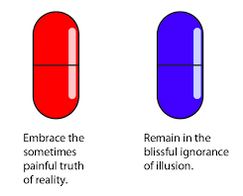Bulletin N° 753
Subject
:
The Machine, the Structure and ‘Transitional Fantasies’.
May 21, 2017
Grenoble, France
Dear
Colleagues and Friends of CEIMSA,
The
mechanical activity of capitalist productions fueled by the ‘private profit
motive’ is by its nature myopic – short-term rewards obscure the foreboding
approach of massive destruction. No one understood these contradictions better
than Félix Guatarri. In a
paper he wrote for the Freudian School in Paris in 1966 - which was eventually
published in Change, n°. 12, by Seuil in 1971 - he analyzes the role played by machines in
the various social structures which entrap unconscious individuals and groups
of people in gut-wrenching contradictions.
We may say of structure that it positions
its elements by way of a system of references that relates each one to the
others, in such a way that it can itself be related as an element to other
structures.
The agent of action, whose definition here does
not extend beyond this principle of reciprocal determination, is included in the
structure. The structural process of de-totalized
totalization encloses the subject, and will not let go as long as it is in a
position to recuperate it within another structural determination.
The machine, on the other hand, remains
essentially remote from the agent of action. The subject is always somewhere
else. Temporalization penetrates the machine on all
sides and can be related to it only after the fashion of an event. The
emergence of the machine marks a date, a change, different from a structural
representation.
The history of technology is dated by the
existence at each stage of a particular type of machine; the history of the
sciences is now reaching a point, in all its branches, where every scientific
theory can be taken as a machine rather than a structure, which relates it to
the order of ideology. Every machine is a negation, the destroyer by
incorporation (almost to the point of excretion), of the machine it replaces.
And it is potentially in a similar relationship to the machine that will take
its place.
Yesterday’s machine, today’s and tomorrow’s,
are not related in their structural determinations: only by a process of
historical analysis, by reference to a signifying chain extrinsic to the
machine, by what we might call historical structuralism, can we gain any
overall grasp of the effects of continuity, retro-action and interlinking that
it is capable of representing.
For the machine, the subject of history is
elsewhere, in the structure. In fact, the subject of the structure, considered
in its relationship of alienation to a system of de-totalized totalization, should rather be seen in relation to a
phenomenon of ‘being an ego’ – the ego here being in contrast with the subject
of the unconscious as it corresponds to the principle stated by [Jacques] Lacan: a signifier represents it for another signifier. The
unconscious subject as such will be on the same side as the machine, or better
perhaps, alongside the machine. There is no break in the machine itself: the
breach is on either side of it.
The individuals’ relationship to the machine
has been describe by sociologists following Friedmann as one of fundamental alienation. This is undoubtedly
true if one considers the individual as a structure for tantalization of the
imaginary. But the dialectic of the master craftsman and the apprentice, the
old pictures of the different trades flourishing in difference parts of the
country, all this has become meaningless in the face of modern mechanized
industry that requires its skilled workers to start from scratch again with
every new technological advance. But does not this starting from scratch mark
precisely that essential breakthrough that characterizes the unconscious subject?
Initiation into a trade and becoming
accepted as a skilled worker no longer takes place by way of institutions, or
at least not those envisaged in such statements as ‘the skill has precedence
over the machine’. With industrial capitalism, the spasmodic evolution of
machinery keeps cutting across the existing hierarchy of skills.
In this sense, the worker’s alienation to
the machine excludes him from any kind of structural equilibrium, and puts him
in a position where he is as close as possible to a radical system of
realignment, we might say of castration, where he loses all tranquility, all
‘self-conforming’ security, all the justification of a ‘sense of belonging’ to
a skilled trade. Such professional bodies as still exist, like doctors,
pharmacists, or lawyers, are simply survivals from the days of pre-capitalist
production relations.
This change is of course intolerable;
institutional production therefore sets out to conceal what is happening by
setting up systems of equivalents, of imitations. Their ideological basis is to
be found not solely in fascist-type , paternalistic
slogans about work, the family and patriotism, but also within the various
versions of socialism (even including the most apparently liberal ones, like
the Cuban), with their oppressive myth of the model worker, and their
exaltation of the machine whose cult has much the same function as thet the hero in antiquity.
As compared with the work done by machines,
the work of human beings is nothing. This working at ‘nothing’, in the special
sense in which people do it today, which tends more and more to be merely a
response to a machine – pressing a red or black button to produce an effect
programmed somewhere else – human work, in other words, is only the residue
that has not yet been integrated into the work of the machine.
Operations performed by the workers,
technicians and scientists will be absorbed, incorporated into the workings of
tomorrows machine; to do something over and over no longer offers the security
of ritual. It is no longer possible to identity the repletion of human actions
(‘the noble task of the sower’) with the repletion of
the natural cycle as the foundation of the moral order. Repetition no longer
establishes a man as someone who can do that particular job. Human work today
is merely a residual sub-whole of the work of the machine. This residual human
activity is no more than a partial procedure that accompanies the central
procedure produced by the order of the machine. The machine has now come to the
heart of desire, and this residual human work represents no more than the point
of the machine’s imprint on the imaginary world of the individual . . . .
Every new discovery - in the sphere of scientific research,
for example – moves across the structural field of theory like a war machine,
upsetting and rearranging everything so as to change it racially. Even the
researcher is at the mercy of this process. His discoveries extend far beyond himself, bring in their train whole new branches of
researchers, and totally redesigning the tree of scientific and technological
implications. Even when a discovery is called by its author’s name, the result,
far from ‘personalizing’ him, tends to be to turn his proper name into a common
noun! The question is whether this effacing of the individual is something that
will spread to other forms of production as well.
Though it is true that this unconscious
subjectivity, as a split which is overcome in a signifying chain, is being
transferred away from individuals and human groups towards the world of
machines, it still remains just as un-representable
at the specifically machinic level. It is a signifier
detached from the unconscious structural chain that will act as representative
to represent the machine.
The
essence of the machine is precisely this function of detaching a signifier as a
representative, as a ‘differentiator’, as a causal break, different in kind
from the structurally established order of things. It is this operation that
binds the machine both to the desiring subject and to its status as the basis
of the various structural orders corresponding to it. The machine, as a
repetition of the particular, is a mode – perhaps indeed the only possible mode
– of univocal representation of the various forms of subjectivity in the order
of generality of the individual or the collective plane.
In trying
to see things the other way round, starting from the general, one would be
deluding oneself with the idea that it is possible to base oneself on some
structural space that existed before the break through by the machine. This
‘pure’, ‘basic’ signifying chain, a kind of lost µEden of desire, the ‘good old
days’ before mechanization, might then be seen as a meta-language, an absolute
reference point that one could always produce in place of any chance event or
specific indication.
This would
lead to wrongly locating the truth of the break, the truth of the subject, on
the level of representation, information, communication, social codes and every
other form of structural determination.
The voice,
as speech machine, is the basis and determinant of the structural order of
language, and not the other way round. The individual, in his bodiliness, accepts the consequences of the interaction of
signifying chains of all kinds which cut across and tear him apart. The human
being is caught where the machine and the structure meet.
Human
groups have no such projection screen available to them. The modes of
interpretation and indication open to them are successive and contradictory, approximative and metaphorical, and are based upon
different structural orders, for instance on myths or exchanges. Every change
produced by the intrusion of a machine phenomenon will thus be accompanied in
them with the establishment of what one may call a system of anti-production,
the representative mode specific to structure.
I need
hardly say that anti-production belongs to the order of the machine: the
keynote here is its characteristic of being a subjective change, which is the
distinctive trait of every order of production. What we need therefore is a
means of finding our way without moving as though by magic from one plane to
another. We must, for instance, relate to the same system of production both
what goes on in the world of industry, on the shop floors or in the manager’s
office, and what is happening in scientific research, and indeed in the world
of literature and even of dreams.
Anti-production will be, among other things, what has been described
under the term ‘production relations’. Anti-production will tend to effect a
kind of re-tilting of the balance of phantasy, not
necessarily in the direction of inertia and conservatism, since it can also
lead to generalizing within a given social area a new dominant mode of
production, accumulation, circulation and distribution relations, or of any
other superstructural manifestation of a new
type of economic machine. Its mode of
imaginary expression is then that of the transitional phantasy.
. . .
Group phantasy superimposes the different levels, changes them
round, substitutes one for another . It can only turn
round and round upon itself this circular movement leads it to mark out certain
areas as dead ends, as banned as impassable vacuoles, a whole no-man’s land of
meaning. Caught up within the group, one phantasy
reflects another like interchangeable currency, but a currency with no
recognizable standard, no ground of consistency whereby it can be related, even
partially, to anything other than a topology of the most purely general kind.
The group – as a structure – phantasizes events by
means of a perpetual and not-responsible coming and going between the general
and the particular. A leader, a scapegoat, a schism, a threatening phantasy from another group – any of these is equated with
the group subjectivity. Each event or crisis can be replaced by another event
or crisis, inaugurating a further sequence that bears, in turn the imprint of
equivalence of identity. Today’s truth can be related to yesterday’s, for it is
always possible to re-write history. The experience of psychoanalysis, the
starting up of the psychoanalytic machine, makes it clear that it is impossible
for the desiring subject to preserve such a system of homology and re-writing:
the only function of the transference in this case is to reveal the repetition
that is taking place, to operate like a machine – that is in a way that is the
precise opposite of a group effect.
The
group’s instinctual system, because it is unable to be linked up to the
desiring machine – objets petit ‘a’ returning to the
surface of the phantasy body – is doomed to multiply
its phantasy identifications. Each of these is
structured in itself, but is still equivocal in its relationship to the others.
The fact that they lack the differentiating factor, [which] Gilles Deleuze talks of, dooms them to a perpetual process of
merging into one another. Any change is precluded, and can be seen only between
structural levels. Essentially, no break is any longer accepted. That the
structures have no specific identifying marks means that they become
‘translatable’ into one another, thus developing a kind of indefinite logical
continuum that is peculiarly satisfying to obsessionals.
The identification of the similar and the discovery of difference at group
level function according to a second-degree phantasy
logic. It is, for example, the phanstasy
representation of the other group that will act as the locating machine. In a
sense, it is an excess of logic that leads it to an impasse.
This
relationship of the structures sets going a mad machine, madder that the
maddest of lunatics, the tangential representation of a sado-masochistic
logic in which everything is equivalent to everything else, in which truth is
always something apart. Political responsibility is king, and the order of the
general is radically cut off from the order of the ethical. The ultimate end of
group phantasy is death – ululate death, destruction
in its own right, the radical abolition of any real identifying marks, a state
of things in which not merely has the problem of truth disappeared forever but
has never existed even as a problem.
. . .
That
André Malraux could say that the twentieth century is the century of
nationalism, in contrast to the nineteenth, which was that of internationalism,
was because internationalism, lacking a structural expression that matched the
economic and social machineries at work within it, withdrew into nationalism,
then further, into regionalism and various sorts of paticularism
that are developing today, even within the supposedly international communist movement.
The
problem of revolutionary organization is the problem of setting up an
international machine whose distinctive features would be a theory and practice
that ensured it’s not having to depend on the various social structures – above
all the State structure, which appears to be the keystone of the dominant
production relations, even though it no longer corresponds to the means of
production. What entraps and deceived us is that it looks today as though
nothing can be articulated outside that structure. The revolutionary socialist
intention to seize control of political power in the State, which it sees as
the instrumental basis of class domination, and the institutional guarantee of
private ownership of the means of production, has been caught in just that
trap. It has itself become a trap in its turn, for that intention, though
meaning so much in terms of social consciousness, no longer corresponds to the
reality of economic or social forces. The institutionalization of ‘world
markets’ and the prospect of creating super-States increased the allure of the
trap; so does the modern reformist programme of
achieving an ever-greater ‘popular’ control of economic and social sub-wholes.
The subjective consistency of society, as it operates at every level of
economy, society, culture and so on, is invisible today, and the institutions
that express it are equivocal in the extreme. This was evident during the
revolution of May 1968 in France, when the nearest approximation to a proper
organization of the struggle was the hesitant, late and violently opposed
experiment of forming action committees.
The
revolutionary programme, as the machine for
institutional subversion, should demonstrate proper subjective potential and,
at every state of the struggle, should make sure that it is fortified against
any attempt to ‘structuralize’ that potential.
But no
such permanent grasp of machine effects upon the structures could be achieved
on the basis of only one ‘theoretical practice’. It presupposes the development
of a specific analytical praxis at every level of organization of the struggle.
Such a
prospect would in turn make it possible to locate the responsibility of those
who are in any way in a position genuinely to utter theoretical discourse at
the point at which it imprints the class struggle at the very center of
unconscious desire.(cited from Molecular Revolution, pp.111-119)
The historical actor has for all intents and
purposes been removed from the stage, according to Félix
Guatarri; the ersatz ‘desire’ of ‘the machine, as a repetition of the
particular’, interacting with social structures and devoid of human self-consciousness and unconscious conflicts,
assures us of ultimate destruction in an amoral world of our own making, where
the single-minded pursuit of digitally defined goals takes control of our
lives, whether we enthusiastically will it or not.
For more on the castrating effect of religions and
the medieval roots of western civilization, see our June 24, 2014 CEIMSA Bulletin N° 617.
The 20 items below will allow readers to identify the
‘anti-production’ of desires [what Guatarri defines
as ‘signifiers that exist to block and prevent the emergence of any subjective
process on the part of the group’(p.34)] which is
built into the contemporary political economy, leaving all of us ‘neutralized’,
as helpless observers of our moral and material impoverishment, and mostly as unconscious
collaborators in crimes against humanity.
Sincerely,
Francis Feeley
Professor emeritus of American Studies
University Grenoble-Alpes
Director of Research
University of Paris-Nanterre
Center for the Advanced Study of American Institutions and
Social Movements
The University of California-San Diego
a.
Putin Offers Washington Red Pill.
Washington Takes
The Blue One

by Finian
Cunningham
In
an extraordinary moment this week, Russian leader Vladimir Putin offered Washington
a challenge to discover the truth over sensational US media claims that
President Trump had leaked top-secret information to Russia. Washington
rebuffed Putin’s offer.
It
was akin to the iconic scene in the sci-fi movie, The Matrix, in which protagonists
are offered a red or blue pill. Consuming the former leads them
to awaken to the truth, however painful that awakening might be from shattering
erstwhile illusions. Ingesting the alternative blue pill allows one to continue
in a state of illusion, albeit in the form of slavery to The Matrix.
===========
b.
The Real Aim of Trump’s Trip to Saudi Arabia
http://www.counterpunch.org/2017/05/19/the-real-aim-of-trumps-trip-to-saudi-arabia/
by ROBERT
FISK
===========
c.
Noam Chomsky - The Crimes of
U.S. Presidents
https://www.youtube.com/watch?v=5BXtgq0Nhsc
===========
d.
Special Counsel
Investigating Trump Campaign Has Deep Ties
to the Deep State
http://therealnews.com/t2/index.php?option=com_content&task=view&id=31&Itemid=74&jumival=19120
with Coleen Rowley
Former FBI agent and 9/11
whistleblower Coleen Rowley says former FBI head Robert Mueller, now appointed
to investigate the Trump campaign's ties to Russia, participated in covering up
the pre 9/11 role of the U.S. intelligence agencies and the Bush
Administration, helped create the post 9/11 national security/surveillance
state, and helped facilitate the pre-Iraq war propaganda machine
===========
e.
How NSA Can Secretly Aid Criminal Cases
https://consortiumnews.com/2014/06/12/how-nsa-can-secretly-aid-criminal-cases/
(June 12, 2014)
by Ray McGovern
Though the NSA says its mass surveillance of Americans targets
only “terrorists,” the spying may turn up evidence of other illegal
acts that can get passed on to law enforcement which hides the
secret source through a ruse called “parallel construction,” writes ex-CIA
analyst Ray McGovern.
Government wordsmiths have given us this pleasant euphemism to
describe the use of the National Security Agency’s illegal eavesdropping on
Americans as an investigative tool to pass on tips to law enforcement
agencies which then hide the source of the original suspicion and “construct” a
case using “parallel” evidence to prosecute the likes of you and me.
Bottom line? Beware, those of you who think you have “nothing to hide” when
the NSA scoops up your personal information. You may think that the targets of
these searches are just potential “terrorists.” But the FBI, Internal Revenue
Service, Drug Enforcement Administration and countless other law enforcement
bodies are dipping their cursors into the huge pool of mass surveillance.
And, chances are that if some of your scooped-up data gets
shared with law enforcement and the Feds conclude that you’ve violated some
law, you’ll never become aware of how they got onto you in the first place.
They’ll just find some “parallel” evidence to nail you.
After all, it’s altogether likely for a great majority of us
that some dirt can be retrieved with the NSA’s voluminous files an inviting
starting point. AT&T, for example, apparently has kept metadata about its customers,
as well as all other traffic going through its switches, for the past 27 years.
For those who are Caesar’s-wife pure
and whose loved ones also approach perfection, “constructing” a prosecutable
case may be more of a challenge. But relax not. If for some reason the
government decides to get you if you’ve popped up as somehow an obstacle to
“national security” it is not impossible. Even in recent decades, critics of
government policies have ended up facing dredged-up, if not trumped-up, criminal charges over some past indiscretion or misdeed.
===========
f.
Professor Cohen Says Assault on Trump is 'National
Security Threat', 'Beyond Belief'!
http://www.informationclearinghouse.info/47076.htm
by Steven Cohen
[Professor Cohen] declared, "today, I
would say (the greatest threat to national security) is this assault on
President Trump. Let's be clear what he's being accused of is treason. This has
never happened in America, that we had a Russian agent in the White House.
Cohen believes Flynn did nothing wrong by talking to the Russian ambassador,
describing it as 'his job' to do so.
He then illuminated the indelible fact that there is a 4th branch of
government, the intelligence community, who have been
meddling in American foreign affairs, obstructing the other 3 branches of
government.
"In 2016, President Obama worked out a deal with Russian President
Putin for military cooperation in Syria. He said he was gonna
share intelligence with Russia, just like Trump and the Russians were supposed
to do the other day. Our department of defense said it wouldn't share
intelligence. And a few days later, they killed Syrian soldiers, violating the
agreement, and that was the end of that. So, we can ask, who is making our
foreign policy in Washington today?"
Professor Cohen added, "you and I have to
ask a subversive question, are there really three branches of government, or is
there a 4th branch of government? These intel
services. What we know, as a fact, is that Obama tried, not very hard but he
tried for a military alliance with Putin, in Syria, against terrorism and it
was sabotaged by the department of defense and its allies in the intelligence
services."
===========
g.
10
Reasons Trump Should Not Strengthen U.S.-Saudi Ties
http://www.informationclearinghouse.info/47070.htm
by Medea Benjamin
Human rights abuses and funding terrorism, for starters.
===========
h.
The Two Most Dangerous Men in the World: Trump and Crown
Prince Salman
===========
i.
Gorbachev
Warns of Growing Danger
http://www.informationclearinghouse.info/47057.htm
by Rick Sterling
A group of Americans visiting Russia heard dire warnings from ex-Soviet
President Gorbachev that the tensions between the U.S. and Russia
are creating a dangerous situation for the world.
===========
j.
China Widens its Silk Road to the World
http://www.counterpunch.org/2017/05/17/china-widens-its-silk-road-to-the-world/
by PEPE ESCOBAR
Let’s cut to the chase. China’s new ‘Silk Road’
initiative is the only large-scale, multilateral development project that the
21st century has seen so far.
There is no counter-offer from the West.
Which is why the two-day Belt and Road Forum for
International Cooperation, starting this Sunday in Beijing, is being set up as
a game-changer for the global economy. Here the initiative looks likely to
switch to Mark II mode, accelerating into what President Xi Jinping
dubbed, at Davos in January, “inclusive
globalization.”
===========
k.
After Middle Eastern Wars End,
the Medical Wars Begin
http://www.counterpunch.org/2017/05/17/after-middle-eastern-wars-end-the-medical-wars-begin/
by ROBERT
FISK
===========
l.
Inter-American Commission on Human Rights
to Probe U.S. Border Patrol over Killing of Mexican
Father
https://www.democracynow.org/2017/5/17/inter_american_commission_on_human_rights
===========
m.
Saying "No to
Silence":
Hear Murdered Mexican
Journalist Javier Valdez
in His Own Words
https://www.democracynow.org/2017/5/18/saying_no_to_silence_hear_murdered
===========
n.
Global Capitalism: The US
Position Weakens [May 2017]
https://www.youtube.com/watch?v=3PsAqfL-_pM
===========
o.
David Harvey "The End
of Capitalism"
https://www.youtube.com/watch?v=sSBNTgWnJ3c
===========
p.
"Who does control the
world?" - Noam Chomsky - BBC interview 2003
https://www.youtube.com/watch?v=rqznqIpkZz0
Noam Chomsky BBC interview
2003 , http://www.betterworldlinks.org/
Also very important informations
about capitalism you will find here: Prof. Richard Wolff https://www.youtube.com/channel/UCB-5... , Ecosocialism,
climate justice, degrowth - Joanna Cabello [Carbontradewatch] - Daniel Tanuro
[Ecosocialist International Network] https://www.youtube.com/watch?v=csuHt...
George Carlin: "Who Really Controls
America" https://www.youtube.com/watch?v=hYIC0...
===========
q.
Noam Chomsky on the new
Trump era - UpFront special
https://www.youtube.com/watch?v=jB54XxbgI0E&t=3s
===========
r.
Schooling for Myths and Powerlessness
http://www.counterpunch.org/2017/05/18/schooling-for-myths-and-powerlessness-2/
by RALPH NADER
All
over America, school children are completing another academic year before
their summer vacation. This invites the questions, what did
they learn and what did they do with what they learned?
===========
s.
From: "Moshé Machover"
Sent: Tuesday, 16 May, 2017
Subject: Fwd:
Les pratiques israéliennes à l’égard du peuple palestinien et la question de
l’apartheid - traduction française du rapport de la Commission économique et
sociale pour l’Asie occidentale (CESAO) des Nations Unies
Begin forwarded message:
|
||||||||||||||||||||
===========
t.
From:
"Alison Weir, If Americans Knew"
<contact@ifamericansknew.org>
Sent: Friday, 19
May, 2017
Subject: IAK
investigation: Int'l campaign criminalizing pro-Palestinian work as
"hate"

Dear
Francis,
We've
just published what I feel is one of my most important articles.
This
in-depth investigation details a two-decade
campaign to change the meaning of the term "antisemitism" on
behalf of Israel — and to embed the new definition in institutions
and law enforcement.
As
I write in the article: "This effort is now snowballing
rapidly. As a result of this concerted campaign, advocacy for Palestinian
rights is well on the way to being curtailed and even criminalized as
'hate.'"
The
piece traces the saga of this campaign's advancement, beginning with an Israeli
government official and a handful of colleagues, and then taken up by various
European bodies, individuals within the U.S. State Department, Congress, state
legislatures, and even college campuses. A timeline of some key events accompanies
the article.
While many people focus on local or national aspects
of such campaigns, we feel it is essential to learn about the larger picture.
We hope you will share this article
widely!
And
we encourage you to link to this article in the comment sections of news
articles on legislation related to "antisemitism" and
efforts to block the Boycott, Divestment, and Sanctions movement.
Once
again, thank you for the crucial support that makes our work
possible!
Best
wishes,
Alison
|
|
|
|
|
|
|
|
|
|
|
|
|
|
|
|
|
|
|
|
|
|
|
|




